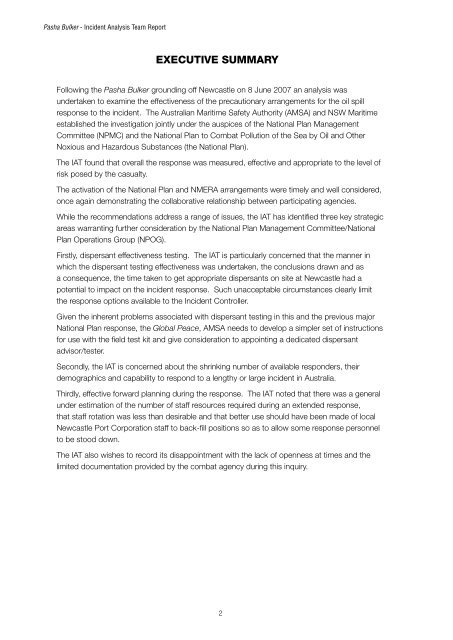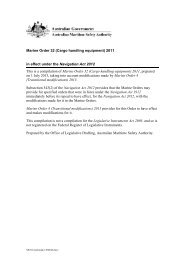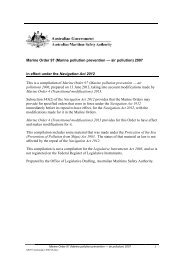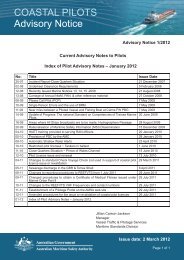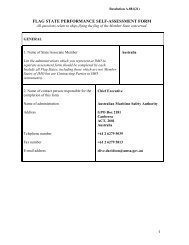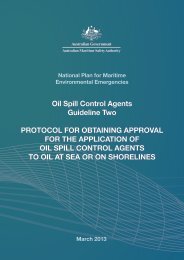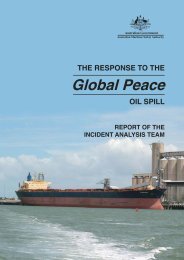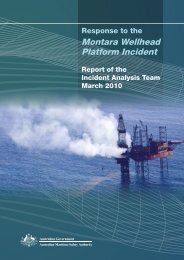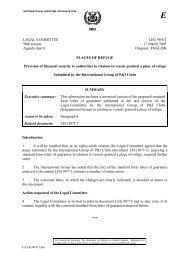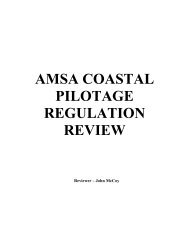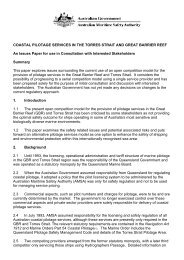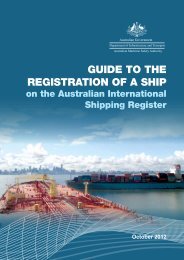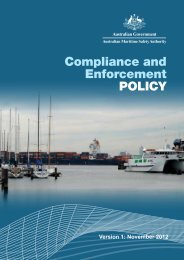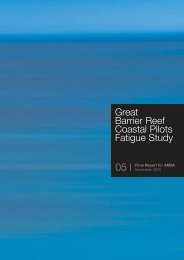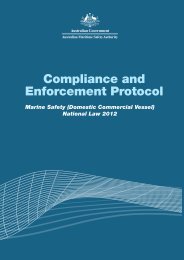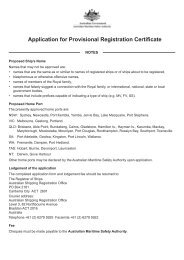Pasha Bulker Report - Australian Maritime Safety Authority
Pasha Bulker Report - Australian Maritime Safety Authority
Pasha Bulker Report - Australian Maritime Safety Authority
Create successful ePaper yourself
Turn your PDF publications into a flip-book with our unique Google optimized e-Paper software.
<strong>Pasha</strong> <strong>Bulker</strong> - Incident Analysis Team <strong>Report</strong><br />
Executive Summary<br />
Following the <strong>Pasha</strong> <strong>Bulker</strong> grounding off Newcastle on 8 June 2007 an analysis was<br />
undertaken to examine the effectiveness of the precautionary arrangements for the oil spill<br />
response to the incident. The <strong>Australian</strong> <strong>Maritime</strong> <strong>Safety</strong> <strong>Authority</strong> (AMSA) and NSW <strong>Maritime</strong><br />
established the investigation jointly under the auspices of the National Plan Management<br />
Committee (NPMC) and the National Plan to Combat Pollution of the Sea by Oil and Other<br />
Noxious and Hazardous Substances (the National Plan).<br />
The IAT found that overall the response was measured, effective and appropriate to the level of<br />
risk posed by the casualty.<br />
The activation of the National Plan and NMERA arrangements were timely and well considered,<br />
once again demonstrating the collaborative relationship between participating agencies.<br />
While the recommendations address a range of issues, the IAT has identified three key strategic<br />
areas warranting further consideration by the National Plan Management Committee/National<br />
Plan Operations Group (NPOG).<br />
Firstly, dispersant effectiveness testing. The IAT is particularly concerned that the manner in<br />
which the dispersant testing effectiveness was undertaken, the conclusions drawn and as<br />
a consequence, the time taken to get appropriate dispersants on site at Newcastle had a<br />
potential to impact on the incident response. Such unacceptable circumstances clearly limit<br />
the response options available to the Incident Controller.<br />
Given the inherent problems associated with dispersant testing in this and the previous major<br />
National Plan response, the Global Peace, AMSA needs to develop a simpler set of instructions<br />
for use with the field test kit and give consideration to appointing a dedicated dispersant<br />
advisor/tester.<br />
Secondly, the IAT is concerned about the shrinking number of available responders, their<br />
demographics and capability to respond to a lengthy or large incident in Australia.<br />
Thirdly, effective forward planning during the response. The IAT noted that there was a general<br />
under estimation of the number of staff resources required during an extended response,<br />
that staff rotation was less than desirable and that better use should have been made of local<br />
Newcastle Port Corporation staff to back-fill positions so as to allow some response personnel<br />
to be stood down.<br />
The IAT also wishes to record its disappointment with the lack of openness at times and the<br />
limited documentation provided by the combat agency during this inquiry.<br />
2


